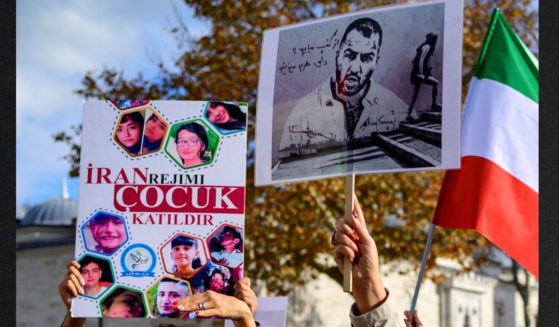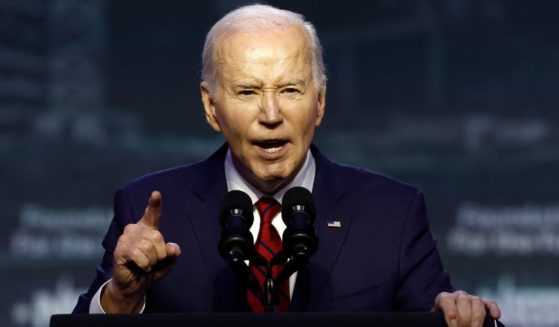Former West Point Cadet Winds Up in Chicago ER After Getting Shot Fighting ISIS in Syria
A former West Point cadet ended up in the emergency room at Northwestern Memorial Hospital in Chicago earlier this spring after being shot by ISIS fighters in Syria.
The unusual turn of events stems from Caleb Stevens’ decision to leave the U.S. Military Academy in August 2014 after completing two years and eventually joining the Kurdish militia group Syrian Democratic Forces, or YPG, in July 2017.
“Part of why I decided to leave the U.S. Army was I was not confident that I could get behind every conflict that the U.S. military engages in,” Stevens told Boston public radio station WBUR in March.
The 23-year-old former cadet explained that fighting with the YPG was something he could get behind.
“I was searching for a way to address the world’s problems in a way that felt real and meaningful and important to me,” Stevens said.
“I think it was a moment of feeling called to do something,” he added. “That I’ve enjoyed enough comfort and safety and privilege, that I feel like it’s important to kind of give back.”
He recounted that hearing a presentation by the Christian group World Vision while he was in grade school planted an early seed about the importance of helping others beyond U.S. borders.
The help the Kurds needed were soldiers to confront the Islamic State, which is notorious for its brutal persecution — including mass executions and beheadings — of Christians and other religious minorities,
Stevens told the Chicago Tribune that he was shot Jan. 6 of this year while on sniper duty on a roof top in the Syrian town of Abu Hamam, near the Iraq border.
The American and his fellow soldiers had suddenly come under fire, so they ran for cover.
When Stevens went to retrieve his rifle, he was hit in the lower right leg.
“I fell and I was on my back, so I scooted or crab-walked back into the shelter about 15 or 20 meters away,” he said. “I was in instant survival mode. There was muscle hanging out and a lot of blood spurting out.”
A tourniquet and bandages were applied, and one of Stevens friends, Hogir (a French national fighter with YPG), and other Kurdish fighters helped him hobble down the stairs and onto a stretcher.
“My friends grunted and sweated for a kilometer until I could get to safety,” the soldier recalled.
Hogir told the Tribune they got him to a Syrian field hospital where Stevens was transferred to the American military and transported to Baghdad and underwent multiple surgeries.
The gunshot fractured a bone, damaged nerves and tore his Achilles tendon.
“The DOD (Department of Defense) and the U.S. Army started taking care of me. It was nice of them,” Stevens said.
In March, American military doctors felt he was stable enough to fly back to the U.S.
Upon arriving at Chicago’s O’Hare International Airport, “a bunch of Border Patrol police took one look at me and my passport and said, ‘You’re going to have to come with us,’” Stevens recalled.
After hours of interrogation, the Border Patrol released him and the Michigan resident went to the Northwestern emergency room.
Stevens had one more run-in with the law enforcement officers when the hospital reported the gunshot wound victim as an “ISIS member shot overseas.”
“He was sitting there in his hospital bed and about seven or eight police officers came in and were talking to him kind of aggressively and asking him what was going on. But that got worked out pretty quickly and they found out he was fighting ISIS,” Tribune reporter Rosemary Sobol explained in an interview with WBUR.
Despite being shot and the other hardships he experienced, Stevens feels he made the right decision to join the YPG.
“There were times when I was afraid for my life and there were times when it felt like it was just a matter of time before I died or got wounded,” Stevens said. “But I think being with people that you care about and having a mission that you care about, that does a lot to make you feel like even if you’re afraid, you have a reason to get over it.”
“I’m absolutely glad that I went,” he added. “The experiences I had there, they have helped me learn a lot about other people, learn a lot about myself. Staring death in the face, I think it shows you what you want to live for.”
Truth and Accuracy
We are committed to truth and accuracy in all of our journalism. Read our editorial standards.












